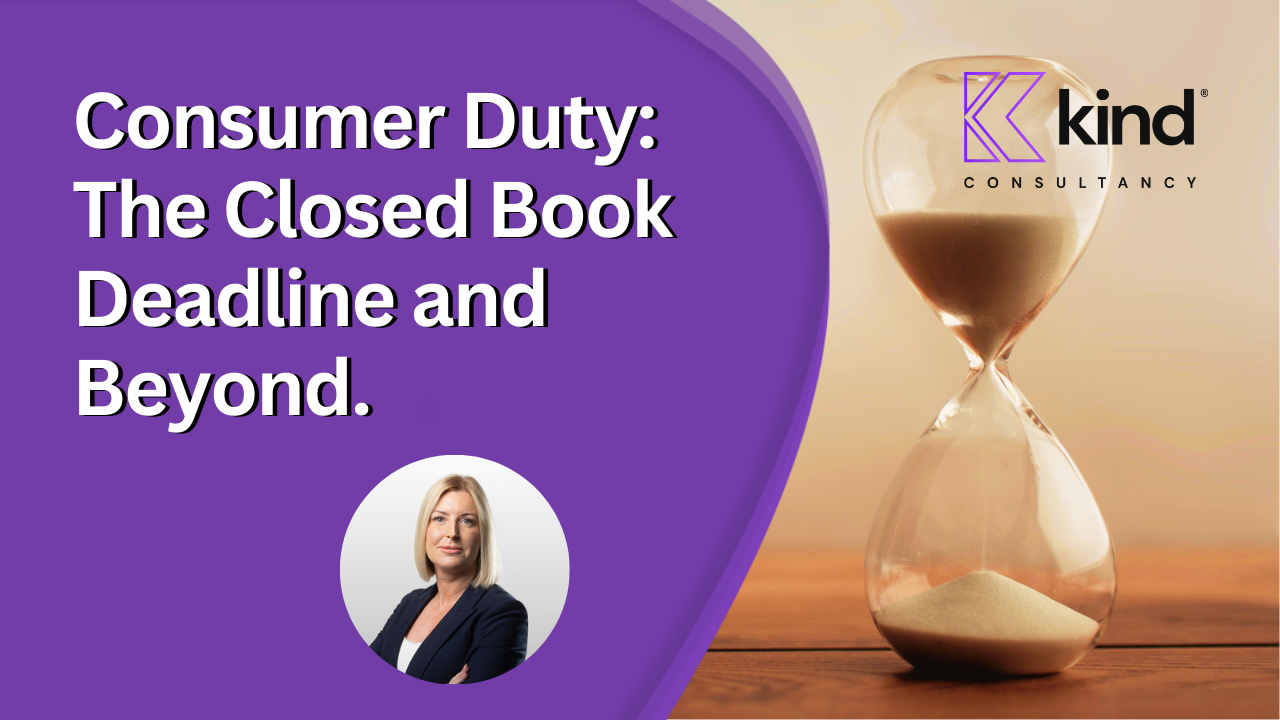Consumer Duty: The Closed Book Deadline and Beyond
The messaging from the FCA has been consistent from the start – Consumer Duty is not a “one and done” box to tick, it’s ongoing, it should be part of the fabric of all customer-facing work a Financial Services trim does. From last July, there has been one exemption – closed book products, with the consumer duty rules and principles not needing to be in effect until July 31st 2024.
For the purpose of Consumer Duty, closed products are defined as products which were “sold before the 31st of July 2023, but have not been marketed or sold to new customers since”. The relative recency of that date means a lot of products fall under that definition, with many people using a credit card or savings account for a long time that is no longer offered to new customers without even necessarily being aware of the fact that this is considered a closed product. But the industry definitely needs to be aware of it and the steps that now need to be taken in relation to such products.
In a speech last week the FCA’s Executive Director of Consumers and Competition, Sheldon Mills, commended the Financial Services industry as a whole for the work that had been done in relation to Consumer Duty, saying that “many firms have already made great progress … offering the right products and services to the right customers; eradicating jargon and moving clients to less bespoke and cheaper options”. However, he also highlighted that there were some firms who were not being pro-active and appeared to be waiting to see if the FCA will intervene before they’re willing to address an issue.
Ideally, every regulated Financial Services firm in the UK will already have or in the process of embedding the Consumer Duty rules and their cross cutting approach to fair value throughout all aspects of the organisation. They may even have already revised their closed products in line with open ones, to maintain uniform approaches and policies. But clearly some organisations are not getting ahead of the regulatory requirements. Closed products may rely on complex old systems and legacy data, potentially needing even more work than some open products to bring them in line with the new rules.
In his speech, Mills highlighted potential issues with closed book products including gaps in monitoring data, the difficulty in establishing ‘fair value’ from older products designed under different circumstances and the challenges presented by engaging customers who may have fallen out of contact and are left paying for products they no longer need or want.
Kind Consultancy are well positioned to help, having assisted multiple organisations across many different sectors within Financial Services with their initial consumer duty rollouts, from gap analysis to implementation, post-deadline assessment to training and embedding of the new duty. Our Advisory Consultants can shepherd your closed book operations into compliance, acting as a ‘Critical Friend’ who can assess already completed consumer duty work to provide regulatory assurance – giving you peace of mind and helping to avoid any regulatory challenges.
For a confidential discussion of your needs, contact us on 0121 643 2100 or lynsey@kindconsultancy.com.
For more on Consumer Duty, read Kind’s Selena Tye on the next steps firms should consider after analysing their current processes.




